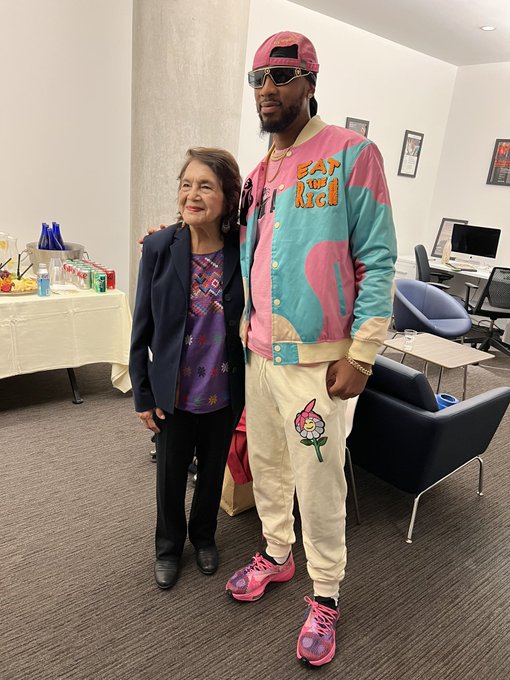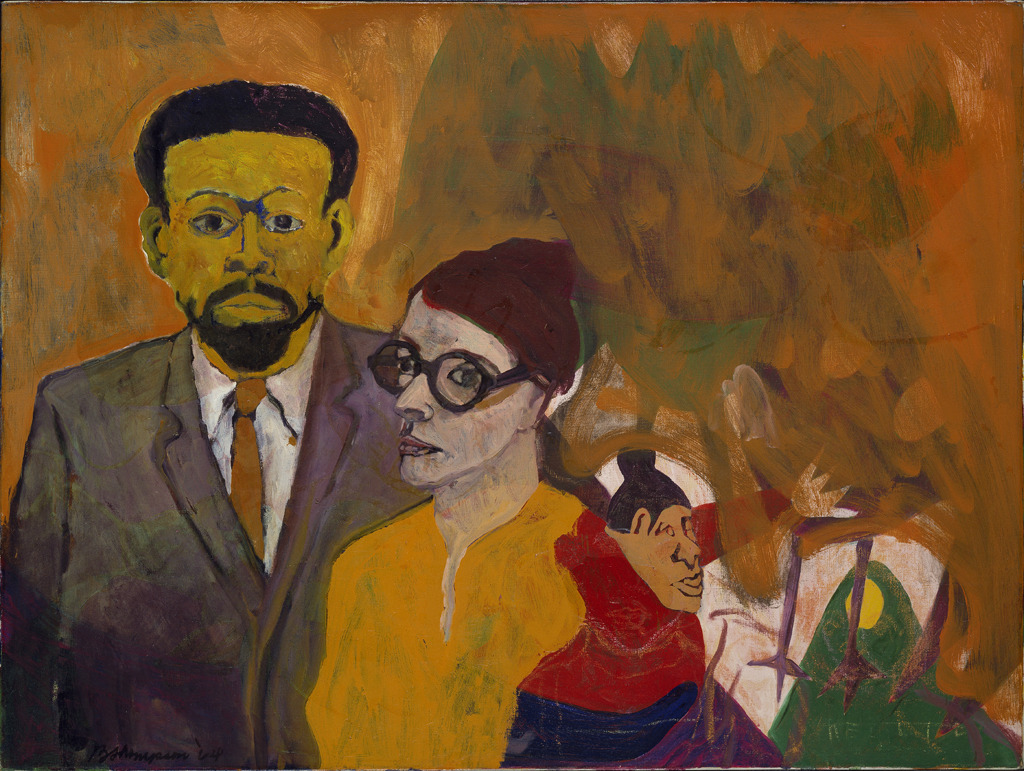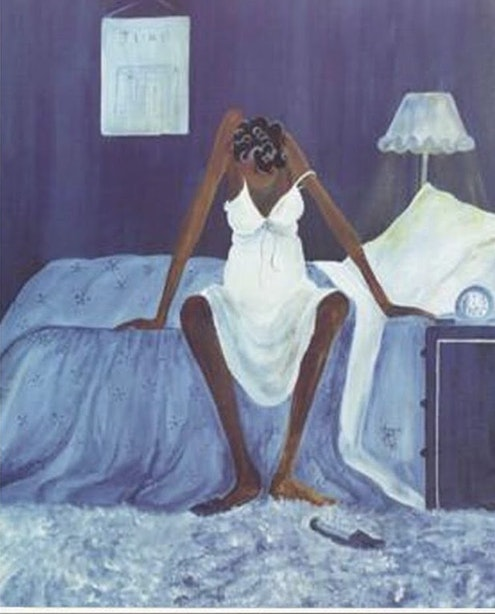I’m with the OG Tonight‼️ @DoloresHuerta @amazonlabor✊🏽

A Website of the Radical Imagination
I’m with the OG Tonight‼️ @DoloresHuerta @amazonlabor✊🏽

Hunter Harris and the rest of us who laugh along with her may need help at the Pearly Gates. Until then, though, bless Ms. H. for failures to forbear such as the following…
Normalize Being Hot And Not A Poet
Kacey Musgraves’ boyfriend, Cole Schafer, is a poet (derogatory). The poetry is not what I would describe as “good.” He appears to be releasing more of it:
View this post on Instagram
Hoping this is a promise!
A demo by by the late Eddie Hinton.

A 1964 painting in the current exhibition, Bob Thompson: This House is Mine, at Chicago’s Smart Museum of Art.
Easter cover for Tommy and Charlie and Johnny, with “cat paw riddim.” (H/T Tiana Reid.)
The moment Amazon workers at the JFK8 warehouse declared victory in their vote to form the first Amazon union in the United States pic.twitter.com/Fr92Wz1LIN
— Kei Pritsker (@KeiPritsker) April 1, 2022
Hunter Harris notes there’s something “sexy” about not having a take on the Oscars’ slap heard round the world. (Though she goes into the gory in her gossip column.) FWIW, C. Liegh McInnes, who’s often posted in these pages, had the best analysis of what went down: “Public buffoonery is embarrassing, especially when the buffoon makes a mess at a place where, just a few years ago, folks were begging to be invited.” He was firmly in Camp Rock, pointing out how Smith’s act will make him a “respected person, a real n-word” among the benighted in black communities.
Smith wasn’t the only bad actor on parade that night in L.A. per this report from In These Times:
Per Bruce Jackson: “In this wonderfully revealing 6-minute interview, the Russian ambassador to Ireland lies, lies, does a bit of slip & slide, and then lies some more. Irish news presenter David McCaullagh calls him on every single one. Now if there were only a brilliant hacker who could slip this into the Fox news feed while Tucker Carlson is doing his nightly Putin-suck….”
Since I haven't found an English version online, I've added subtitles to Putin's humiliation of his spy chief during today's grotesque security council meeting in the Kremlin. pic.twitter.com/bFx25nWzTK
— Peter Liakhov (@peterliakhov) February 21, 2022
This Q&A with Robert Farris Thompson was originally posted at the Sotheby’s website in 2020, when the auction house was charged with selling paintings given to Thompson by Jean-Michel Basquiat and Keith Haring.
Toni Cade Bambara’s “Working At It in Five Parts” is a hidden gem of prismatic self-reflection that we were surprised to find collecting dust in the Spelman College Archives along her voluminous letters, story drafts, teaching lesson plans, and much more.
“Get in your right posture!” Per Ms. Carr as she wails and falls down for her savior. God knows we should all take a knee for her — and her Sister Charisse. (I hear that Youtube commenter: “Why ain’t nobody talking about how ms charisse killed it. lord her voice is heavenly.” No doubt! She made Jekalyn JUMP!)
Jekalyn Carr and Ashley Charisse Mackey are major but they’re not too far gone from the small storefront church in Roxane Beth Johnson’s verse…
Martín Espada’s Floaters has won a National Book Award. What follows are poems from the book — along with an intro and a few echoes — originally posted here last spring.
Hunter Harris: “Me after spending a week thinking about the fallout from Nicki Minaj’s cousin’s cheating ass friend’s swollen balls”: 
Two tracks off Ingram’s 2021 CD, 662:
This obituary was jointly written by the Chametzky family et al.
Jules Chametzky, a Jewish boy from Brooklyn who drew on his background in multi-ethnic 20th century New York to fashion a scholarly and civic career that spanned seven decades and two continents, died Thursday September 23 in Amherst, Massachusetts, to which he had moved in 1958. He was 93.